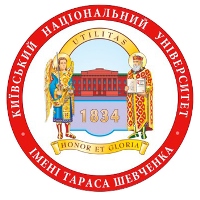‘PLACE OF MEMORY’ – CINEMA «UKRAINE»: ARTISTIC INTERPRETATION OF THE PROTEST OF THE SIXTIERS
DOI:
https://doi.org/10.17721/folia.philologica/2024/8/3Keywords:
novel, contemporary authors, “place of memory”, Soviet pastAbstract
The article is devoted to the problem of postcolonial memory in the artistic interpretation of contemporary Ukrainian prose. Some aspects are based on the theory of ‘memory sites’, which suggests a close study of the reference points in the experience of the past. It is stated that a certain object becomes a ‘place of memory’ due to the significant events and personalities involved in it. In this regard, the specific features of depicting a place that became memorable for Ukrainians in the context of anti-Soviet confrontation during the totalitarian era are studied. This place is the Ukraine Cinema in Kyiv, where a public protest against repressions in the USSR took place at the premiere of the film “Shadows of Forgotten Ancestors” on 4 September 1965. The literary analysis is based on the novels by S. Dziuba and A. Kirsanov “The Forbidden” and T. and O. Lytovchenko “The Book of Stagnation”. As the writers recreated the event-fact, describing its real chronology and the actions of specific individuals (Ivan Dziuba, Vasyl Stus, Viacheslav Chornovil, Serhii Parajanov, etc.), the study referenced the discourse of fiction documentary. It is noted that the authors of both novels focused on recreating the audience, emphasizing its exceptional condition – living through a protest action rather than watching a film. The concentration of main events in one space allowed the writers to show emotional moments, the behaviour of the main characters, the reaction of the audience, as well as to create symbolism of iconic phrases, and to emphasise visual and sound details. The study points to individual authorial approaches to the depiction of the ‘place of memory’ – the Ukraine Cinema at a very significant moment. S. Dziuba, A. Kirsanov, T. and O. Lytovchenko found their own angles, used the intertext in their own way, and built plots with various amounts of speculation. The issue of artistic interpretation of postcolonial memory in contemporary prose is still relevant. Further research is needed into the writers' coverage of “places of memory”, value signs that connect one with one’s past and encourage the cognition of identity.
References
Assman, A. (2014). Prostory spohadu: Formy ta transformatsii kulturnoi pamiati [Spaces of remembrance: Forms and Transformations of Cultural Memory]. (K. Dmytrenko, L. Doronicheva, & O. Yudin, Trans.). Kyiv : NikaTsentr [in Ukrainian].
Varykasha, M. (2010). Literatura non-fiction: pomizh faktom i fiktsiieiu [Non-fiction literature: between fact and fiction]. Aktualni problemy slovianskoi filolohii – Actual problems of Slavic philology, XXIII, 3, 28–39 [in Ukrainian].
Dziuba, I. & Dziuba, M. (2021). Serhii Paradzhanov. Bilshyi za lehendu [Serhii Paradzhanov. More than a legend]. 12nd, rev. Kyiv : Dukh i litera [in Ukrainian].
Dziuba, I. (2008). Spohady i rozdumy na finishnii priamii [Memories and reflections on the home stretch]. Kyiv : Krynytsia [in Ukrainian].
Dziuba, S. & Kirsanov, A. (2019). Zaboronenyi: Istoriia zhyttia i borotby Vasylia Stusa [Forbidden: The Story of the Life and Struggle of Vasyl Stus]. Kharkiv : «Ranok»: Fabula [in Ukrainian].
Golka, M. (2022). Suspilna pamiat ta yii implanty [Public memory and its implants]. (V.F. Sahan, Trans.); (A. M. Kyrydon, S. S. Troian. Ed.) Kyiv : Nika-Tsentr [in Ukrainian].
Kapustianska, N. (2019, January 15). Tvorchyi duet Tymur ta Olena Lytovchenky: «Naiholovnishe roboche mistse – tse mozok pysmennyka». Ukraina moloda [Creative duo Timur and Olena Lytovchenko: “The most important workplace is a writer's brain”]. Retrieved from: https://www.umoloda.kiev.ua/number/3412/164/129779/ [in Ukrainian].
Kyrydon, A. (2016). Heterotopii pamiati: Teoretyko-metodolohichni problemy studii pamiati [Heterotopias of memory: Theoretical and methodological problems of memory studies]. Kyiv : Nika-Tsentr [in Ukrainian].
Kolinko, O. (2016). Non-fikshn yak osoblyvyi fenomen suchasnoi beletrystyky [Nonfiction as a special phenomenon of contemporary fiction]. Naukovyi visnyk Mizhnarodnoho humanitarnoho universytetu. Seriia: Filolohiia – Scientific Bulletin of the International Humanitarian University, 24. 2, 74–77 [in Ukrainian].
Korohodskyi, R. (2016). Do bramy svitla. Portrety [To the gates of light. Portraits]. (O. Sinchenko. Ed). Kyiv : DUKh I LITERA [in Ukrainian].
Lytovchenky, T. & O. (2020). Knyha Zastoiu. 1965–1976 [The Book of Stagnation. 1965–1976]. Kharkiv : Folio [in Ukrainian].
Mokryk, R. (2023). Bunt proty imperii: ukrainski shistdesiatnyky [Rebellion against the Empire: Ukrainian Sixties]. Kyiv : A-BA-BA-HA-LA-MA-HA [in Ukrainian].
Nora, P. (2014). Teperishnie, natsiia, pamiat [Present, nation, memory]. (А. Repa,Trans.). Kyiv : TOV “Vydavnytstvo “KLIO” [in Ukrainian].
Nahorna, L. (2012). Istorychna pam‘iat: teorii, dyskursy, refleksii [Historical Memory: Theories, Discourses, and Reflections]. Kyiv : IPiEND im. I.F. Kurasa NAN Ukrainy [in Ukrainian].
Palamarchuk, M. (2023). Kudy znykly kultovi kinoteatry u tsentri stolytsi [Where the iconic cinemas in the center of the capital have disappeared]. KyivPost. Retrieved from: https://www.kyivpost.com/uk/post/24347 [in Ukrainian].
Savenko, I. (2008). Osnovni problemy dokumentalnoho pysma v konteksti literaturoznovchoho dyskursu mezhi stolit [The Main Problems of Documentary Writing in the Context of Literary Discourse at the Turn of the Century]. Visnyk Lvivskoho universytetu. Seriia filolohichna – Bulletin of Lviv Universit, 44(2), 128–137. [in Ukrainian].
Trymbach, S. (2021). Yak zberehty pamiat heniiv. Peredmova [How to preserve the memory of geniuses]. In Dziuba I., Dziuba M. Serhii Paradzhanov. Bilshyi za lehendu [Serhii Paradzhanov. More than a legend]. 12nd, rev. (pp. 5–19). Kyiv : Dukh i litera [in Ukrainian].









